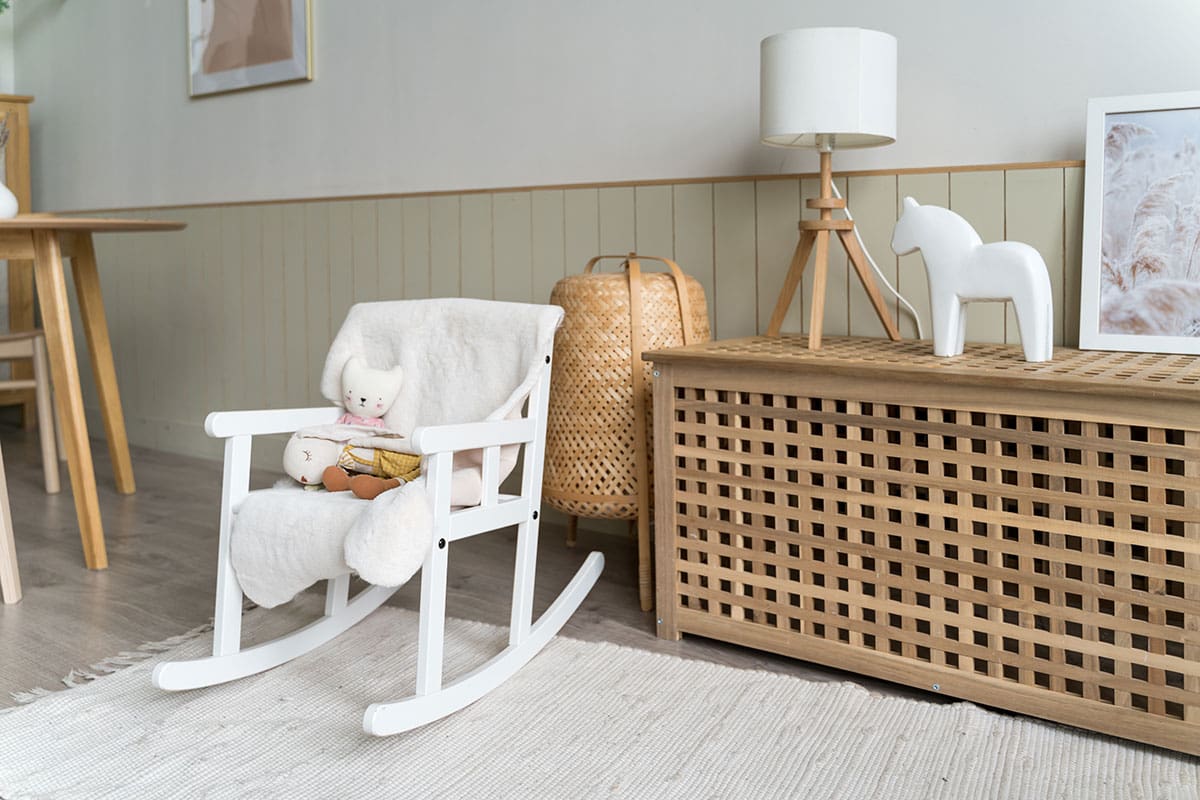Whenever the topic of your soon-coming baby is mentioned, you will most likely get unsolicited advice on what to do as you prepare for your baby.
People can’t help but share their thoughts, experiences, and words of advice because guess what…having a baby is a BIG DEAL!
So congratulations are in order for the newest member of your family who’s on the way.
As a team of children’s health experts, we would like to help by giving you recommendations as you prep your home for the arrival of your newborn.
You may already be aware and have made arrangements for the bigger things like
- Setting up your baby’s nursery
- Spring cleaning the house
- Baby-proofing the house
- Correctly installing your baby car seat—and figuring your way around it
All these are super important but also consider the following.
You need to also give attention to the less-talked-about things that will make a huge difference in the first weeks of baby’s arrival.
Remember: As soon as your little one shows up, you won’t have much time on your hands. It may take a while before the baby develops sleeping patterns that are friendly to you.
During this time, you may find yourself tired and sleep-deprived most of the time, and …the last thing you will need is the EXTRA strain of trying to develop a system to manage the changes around you.
All this is why you should do these 5 things weeks or even months before your baby comes.
1-Stalk up cooked meals in the freezer
Are you a fan of home-cooked meals?
If yes, then you might wanna think about cooking some and keeping them in your freezer for those first few days (or weeks) after your baby arrives.
In between the diaper changes, feeding times, giving baths, and comforting your newborn, you will probably struggle to find enough time to cook decent food.
While preparing for the coming of a newborn, a lot of new parents forget that they literally need both hands to care for a baby in the early stages. This obviously makes it a challenge to multitask while nurturing newborns.
If your little bundle of joy is especially fussy, she may not want to be put down even for a short while.
At such times, it will be relieving to know that you can conveniently take out a precooked meal from your freezer; defrost, reheat it, and nourish yourself.
2-Prepare a special bag to keep baby’s essentials handy
Tiny as they are, newborns have many (and I mean very many!) items they use every day. It’s not surprising to find these scattered around the house anytime.
If you have a system in place, however, you will always know where to find the most important things whenever you need to use them.
For this reason, we recommend having a special bag to keep all the stuff you often use. Prepare this bag in advance and put these essentials in it
- Diapers
- Wipes
- Napkins
- Vaseline
- Baby oil
- Diaper rash cream
- Extra bibs
- Extra burp cloths
Here’s a common scenario when nursing a newborn:
You may already be seated and feeding your baby when you realize that you forgot to put their bib on. At the same time, you realize that you need to moisturize their face again.
If you have a special bag with all these things inside, it will be easier and quicker to ask someone to simply pass you the bag.
Baby’s special bag will also come in handy if you need to change their diaper from some other place other than their regular diaper station.
3-Have feeding bottles and formula–even if you plan on breastfeeding exclusively
If you’re planning to give your baby breast milk only for the first 4 to 6 months, good going!
The AAP actually recommends that babies be breastfed exclusively for about the first 6 months.
However, we also understand that due to some unforeseen circumstances, you may need to supplement your baby’s feeding with formula.
In the event that this happens, it will be inconvenient to begin searching for feeding bottles and trying to figure out which baby formula is best.
This is why we recommend having at least one tin of formula and some feeding bottles beforehand.
In any case, feeding bottles will be useful whenever you need to pump out some breast milk for future use.
4-Prepare poster for your baby’s ‘first-time’s
A lot of parents look back and wish they had recorded the special first times their baby ever did something.
We’ll tell you this from experience: If you don’t make deliberate efforts to capture your little child’s developments as soon as they happen, you will forget.
Like we’ve been saying, you will have too much on your hands and mind when you first start caring for your bundle of joy. If you don’t have a ready-made chat to plug in the details for baby’s first-timers, it will skip your mind.
We recommend a good old-fashioned hard-copy aesthetic poster for this exercise. A soft copy or phone app may not be that helpful because let’s face it…how many times a day do you ignore notifications on your phone?
But picture this: A neat and colorful poster carefully stuck on your baby’s nursery wall will remind you to note special events in your child’s development. For example, when your baby first follows your finger as you move it over their eyes and you’re convinced that he now sees!
Other important milestones you may want to include in your chat are:
- First smile
- First signs of seeing
- First teeth
- First grip
- First sit
5-Find a pediatrician for your little one
Finding a good pediatrician for your child is a process that requires due diligence.
It’s important to establish a long-term relationship with your child’s pediatrician, as they will play a crucial role in your child’s overall health and well-being.
Here are some steps and considerations to follow as you choose the best doctor to oversee your little child’s healthcare needs:
- Research and Gather Recommendations — From friends, family, or other healthcare professionals. Online reviews and local parenting groups can also provide insights into pediatricians in your area.
- Consider Location and Office Hours — Make sure they fit your home location and schedule well.
- Check Pediatrician’s Credentials and Experience
- Make Sure They Accept Your Insurance — Contact the pediatrician’s office and your insurance provider to confirm coverage.
- Schedule a Meet and Greet — To ask questions and assess the doctor’s communication style.
- Consider Availability and Accessibility — Inquire about the pediatrician’s availability for sick visits, emergencies, after-hours care, or via phone or email for advice and non-urgent concerns.
- Discuss Approach to Patient Care — What’s the pediatrician’s approach to preventive care, vaccinations, treatment plans, etc?
As you can see, this process could take quite a while. And considering that a child’s first Well Child Exam occurs about 3 to 5 days after birth, we advise you to pick a pediatrician in advance.
An expert board-certified pediatrician in McKinney
If you live in Mckinney, Texas, schedule a meet-and-greet with Dr. Chung—our expert general pediatrician at Happy Bun Pediatrics.
Dr. Jennie (Yu-Chen) Chung, MD, FAAP has over 15 years of experience in pediatric care. She’s a mother of 2 healthy kids and is loved by both parents and her little patients. This isn’t surprising considering that she treats her patients like her own kids, giving lots of love, support, and smiles.
Get in touch with us to hear more about how we can ensure optimal health for your little one from birth.
Our practice is near Frisco and we also service the neighborhood areas of Prosper, Allen, Plano, Little Elm, and Celina areas.


